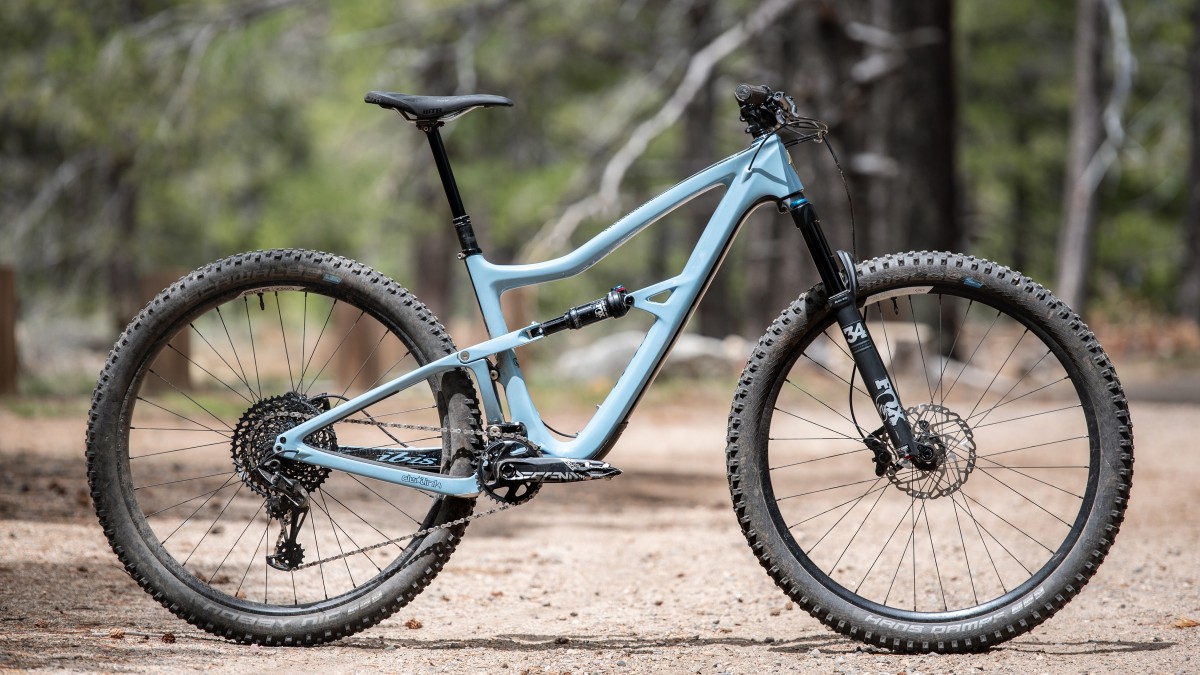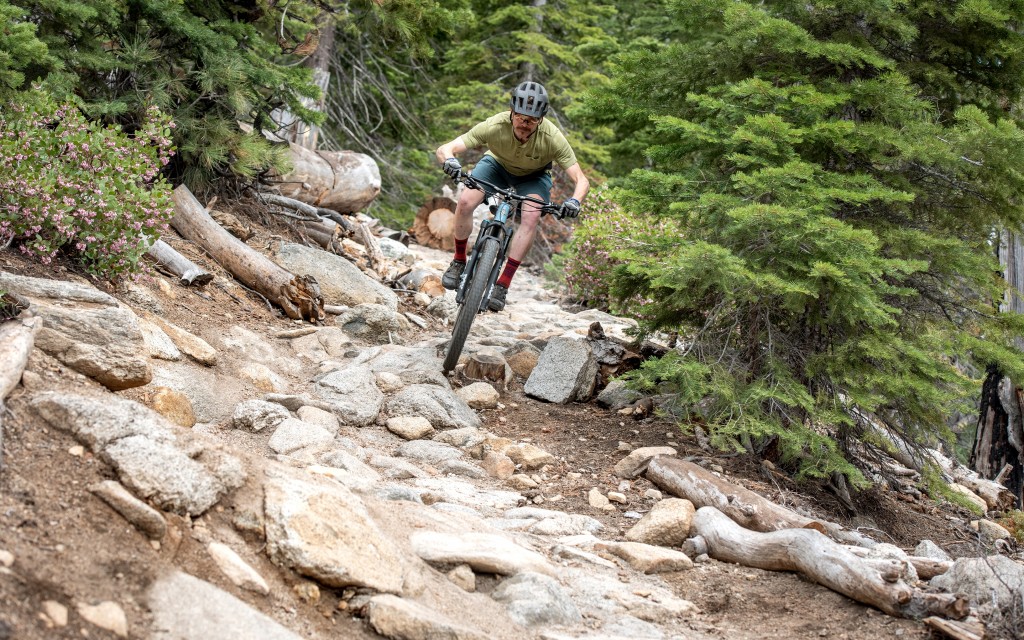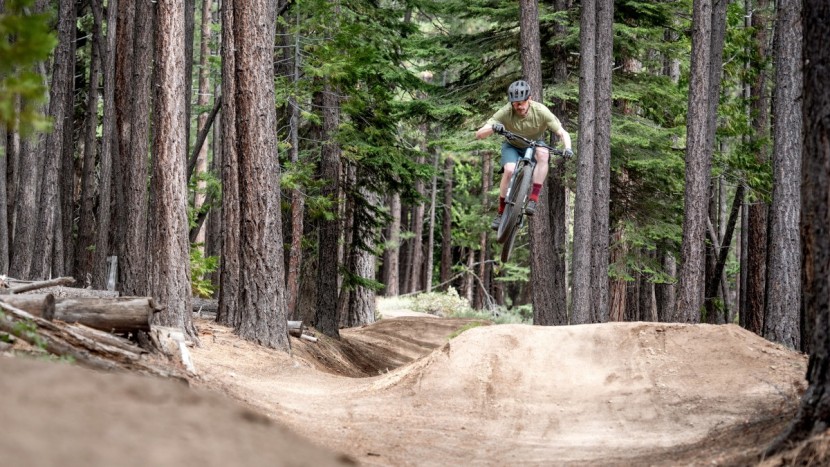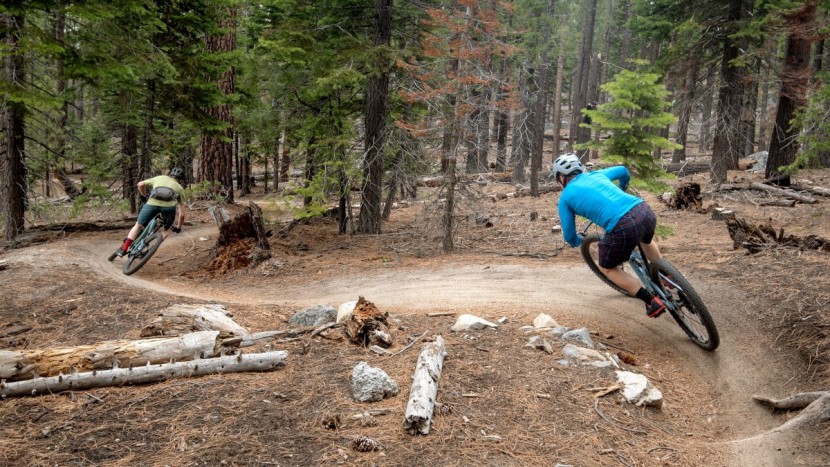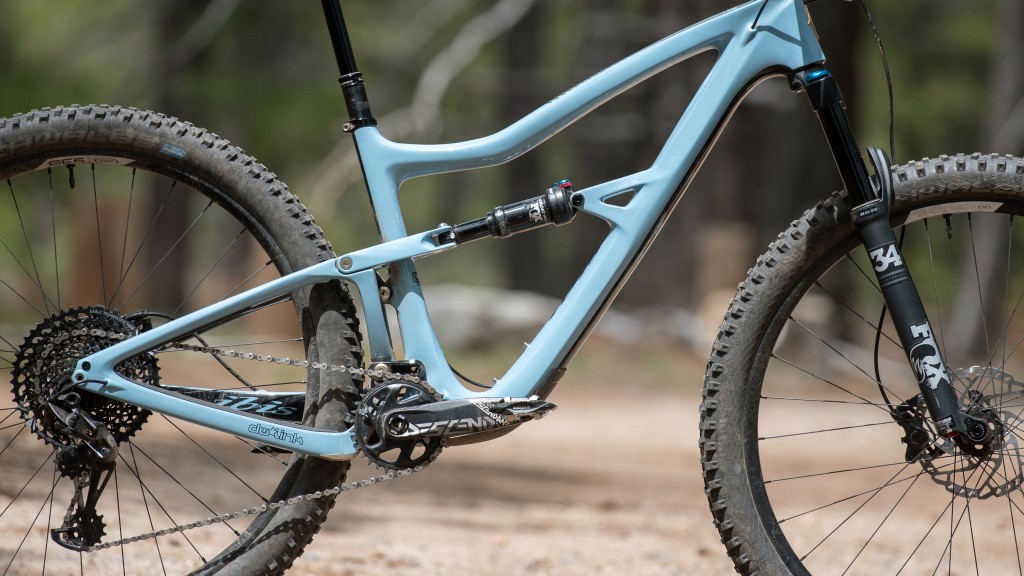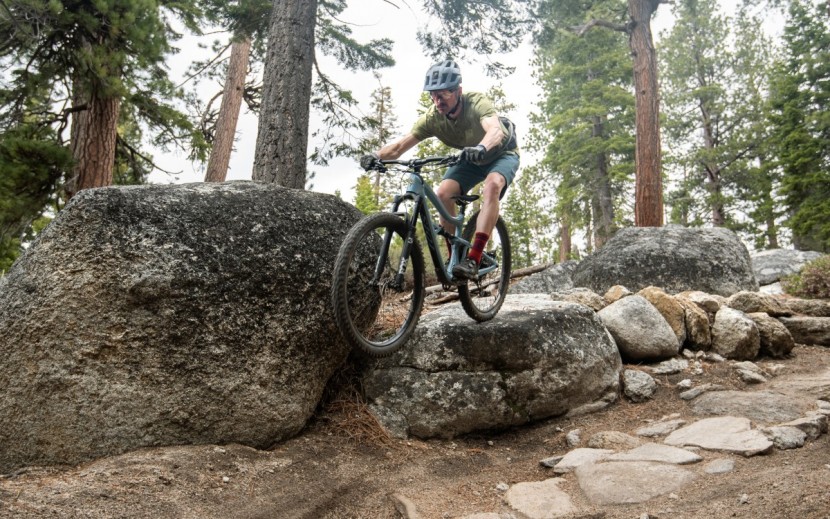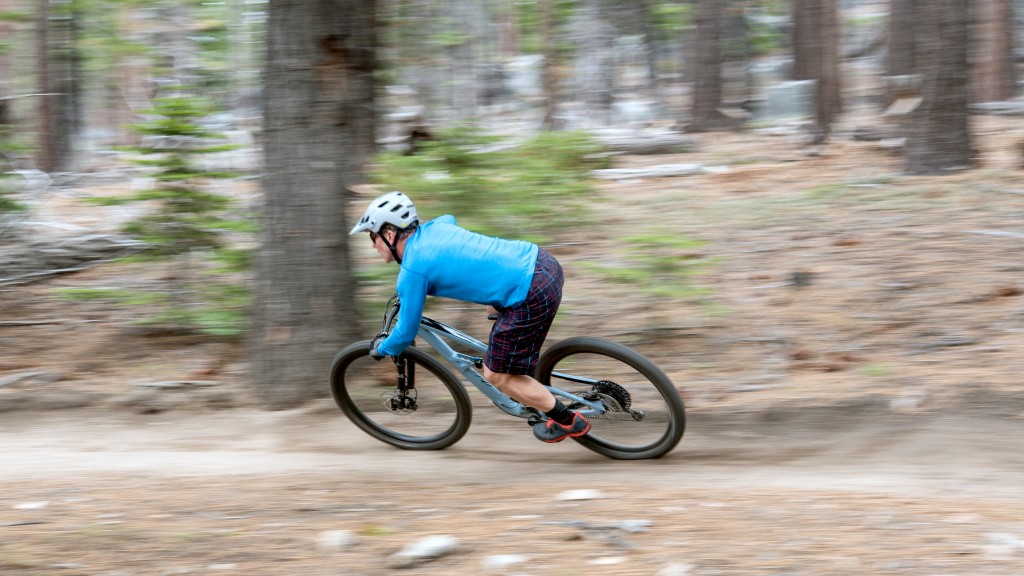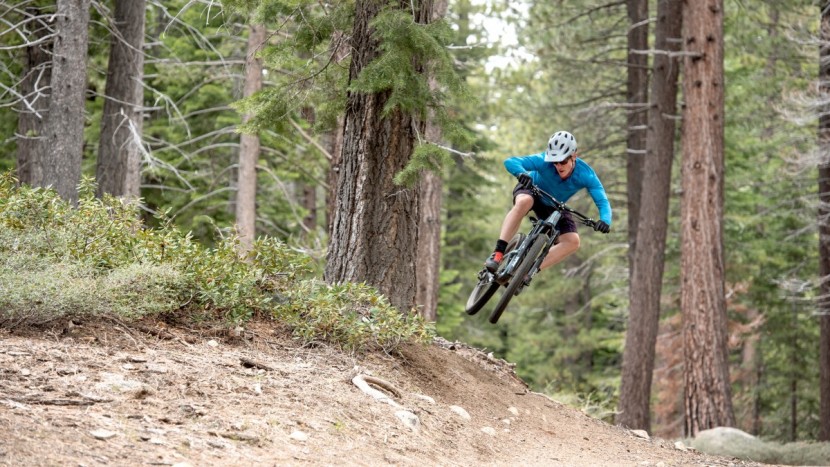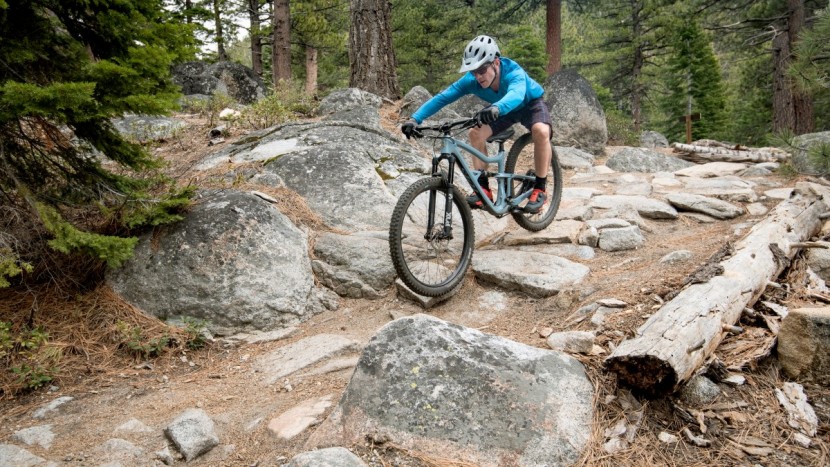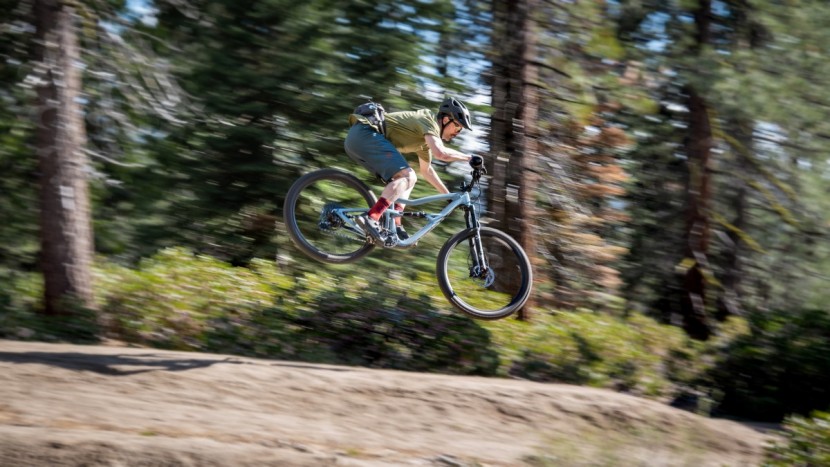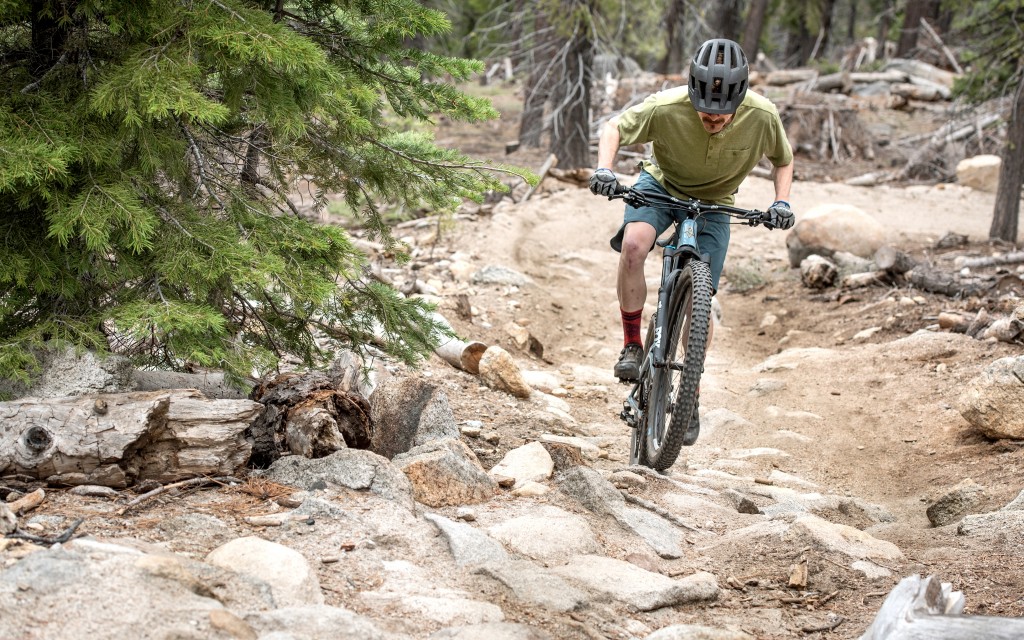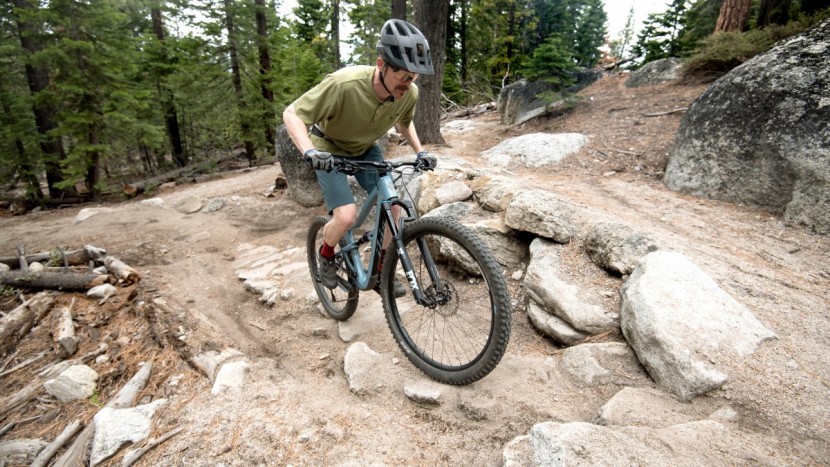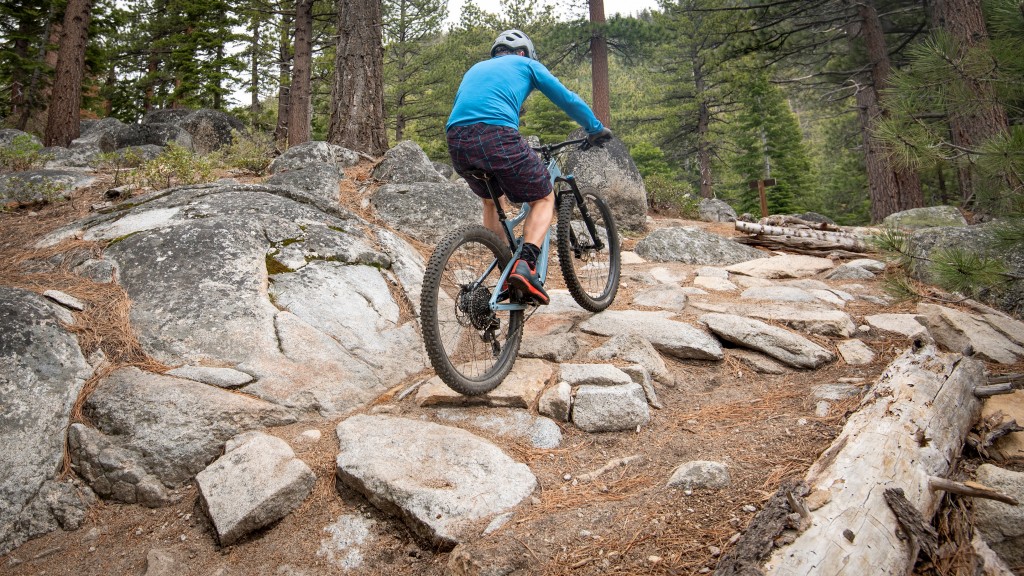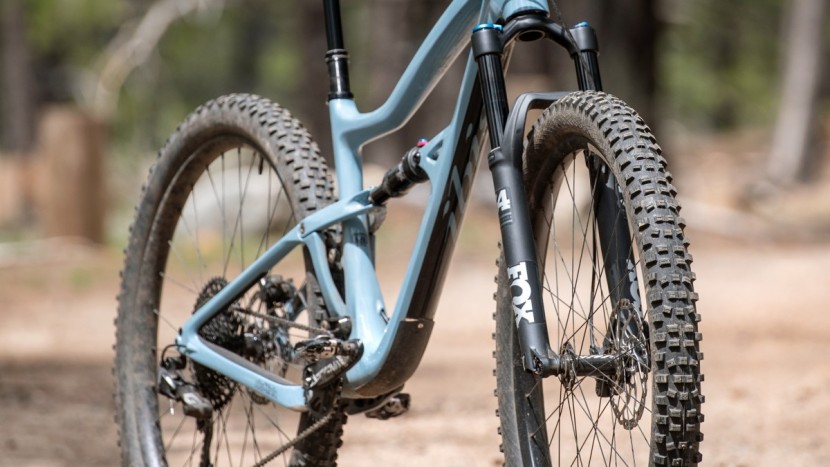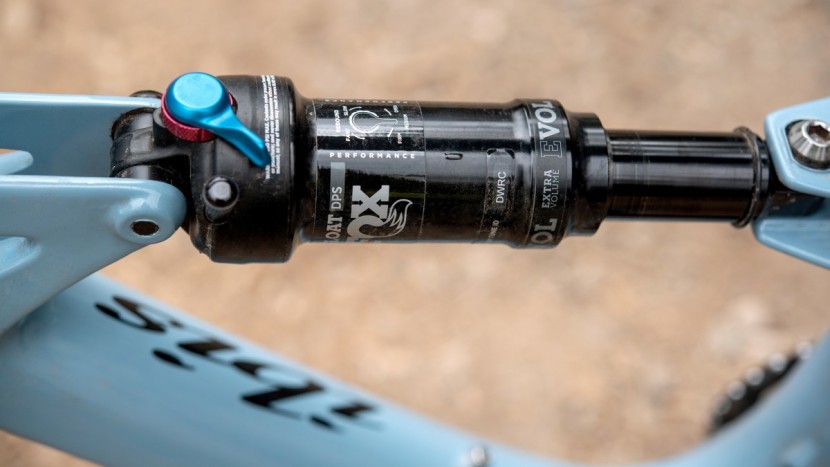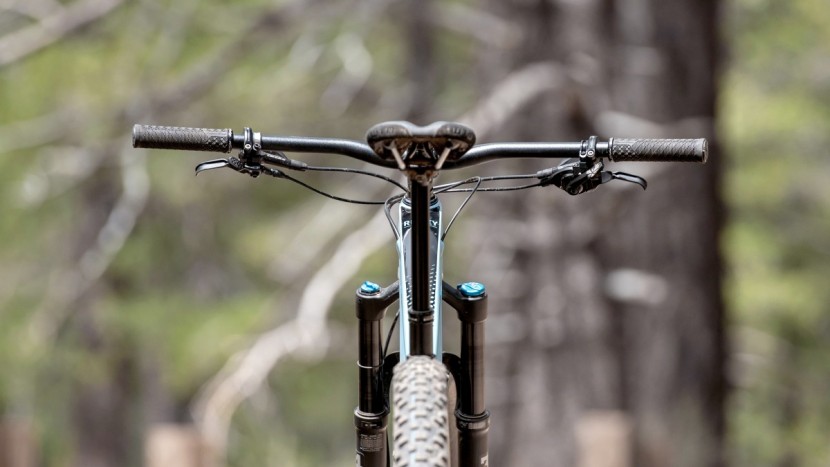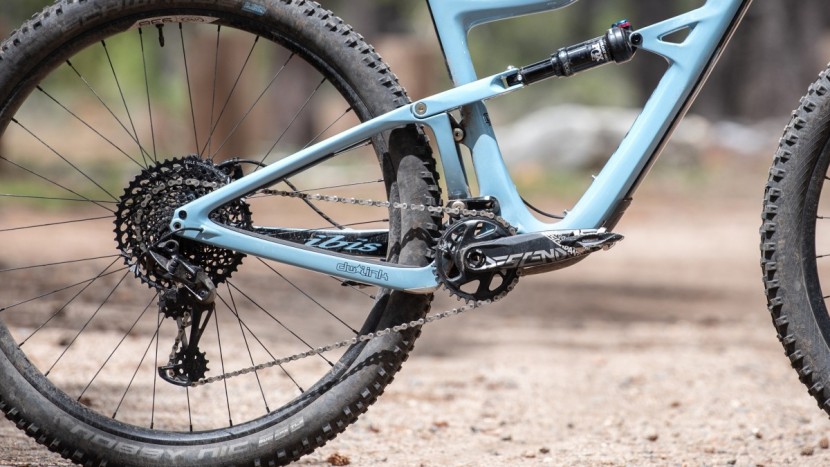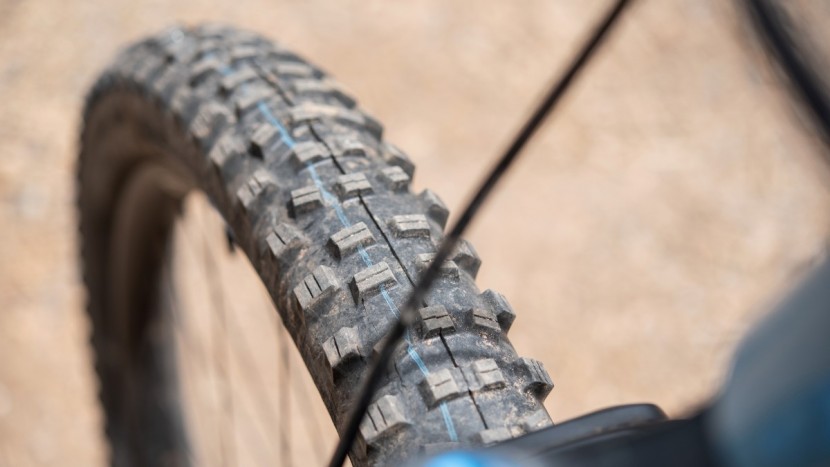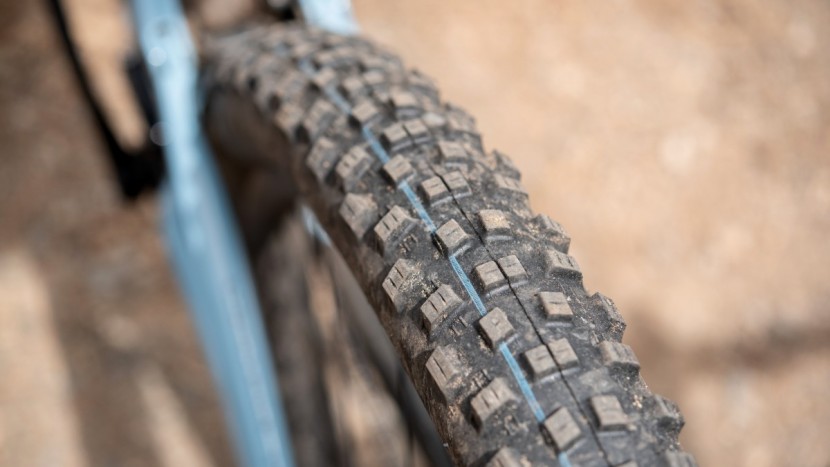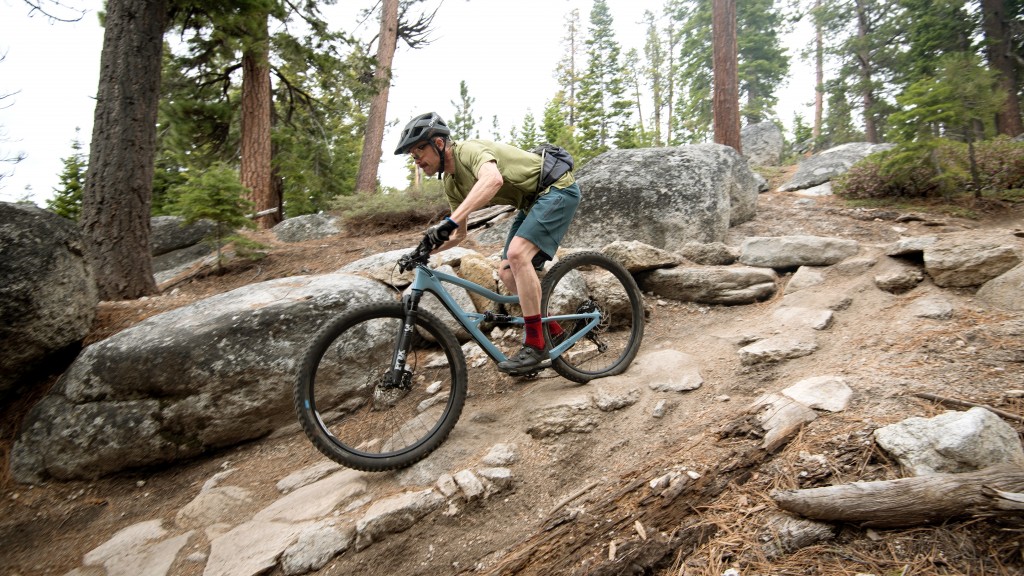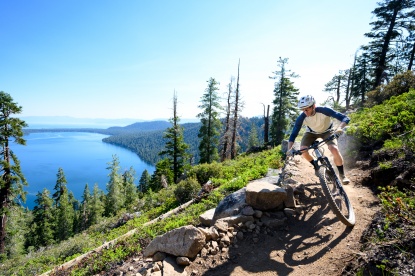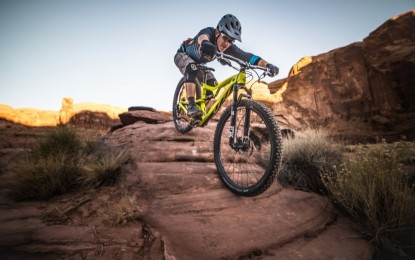
Our Verdict
Our Analysis and Test Results
Ibis recently announced some very minor updates to the popular Ripley V4 trail bike. The geometry remains the same, although they have modified the rear triangle slightly to work with a Universal Derailleur Hanger (UDH), adjusted the chain line to 55mm, and added enhanced chain protection and upgraded clevis bushings. Additionally, Ibis updated their logo for the first time in decades. The models with the updated rear triangle are called the Ripley V4S. -October 2022
Should I Buy This Bike?
Ibis refers to the new Ripley as a “snappy, flickable, playful, fast, lightweight, and versatile 29” trail bike." It's pretty hard to argue with that as all of those adjectives apply to this new and improved version of their long-standing short travel trail bike. Last year, Ibis released a super versatile longer-travel trail bike, the Ripmo, which quickly earned our Editor's Choice Award. The new version of the Ripley is the logical next step in the progression of this shorter travel bike's design and is clearly inspired by the Ripmo. It's still energetic and playful, but now it boasts impressive stability and more confidence-inspiring downhill capabilities thanks to the long and slack treatment. Its climbing performance has also improved thanks to the steeper seat tube angle and lighter weight. The new Ripley is our Editor's Choice short travel trail bike.
If you're looking for a more aggressive mid-travel trail bike, the Trek Fuel EX 9.8 is worth a look. The Fuel EX 9.8 has 140mm of rear wheel travel paired with a beefy Fox 36 150mm travel fork and adjustable head tube angle. The additional travel, slacker head tube, and sturdier fork are a bit more appropriate for those with a rowdier attitude and terrain. Despite its more aggressive geometry and downhill prowess, the Trek is still an exceptionally efficient climber. The Fuel EX 9.8 doesn't come cheap but its versatility makes it a bargain.
The Santa Cruz Tallboy is another interesting comparison. The Tallboy also rolls on 29-inch wheels and has the same travel numbers and a strikingly similar geometry to the Ripley. The Tallboy has a slightly slacker head tube angle that we feel makes it a little more confident in steeper terrain, but makes it feel a touch less agile than the Ripley. The Tallboy's VPP suspension design provides a very stable pedaling platform but doesn't quite offer the same level of small bump compliance as the DW-link on the Ripley. Both bikes are fantastic and are offered with similar build kits and prices.
Frame Design
The new Ripley has a completely redesigned frame that is very similar in both looks and numbers to that of its longer travel sibling, the Ripmo. While the previous version of the Ripley, known as V3, was incredibly lively and playful, its geometry had gone unchanged for a few years and was getting a little long in the tooth and dare we say outdated. The new frame's design brings the Ripley up to date with an extended reach and wheelbase, a slacker head tube, and a steeper seat tube. Ibis has also done away with their eccentric style of rear suspension linkage in favor of a more standard DW-Link that allows for a straight, uninterrupted seat tube and the ability to run longer dropper seat posts.
The DW-Link is basically identical to that found on the Ripmo. This is a dual-link system with one just above the bottom bracket and another about mid-way up the seat tube. Both links move together in the same direction as the rear end moves through its travel with a linear push on the shock that is attached a little above the mid-point of the down tube. This design feels impressively efficient with excellent pedaling and mid-stroke support and plush big-hit compliance.
We measured our size large Ripley test bike to have a 625mm effective top tube and a 475mm reach. The head tube angle is 66.5-degrees, and the seat tube is a steep 76.2-degrees. The wheelbase is 1210mm with 434mm chainstays. These numbers are dramatically different from the previous version; it is longer, slacker, and steeper. It tips the scales at a very respectable 28 lbs 14 oz without pedals.
Design Highlights
- Designed for 29-inch wheels only
- Frame has clearance for up to 2.6" tires
- 120mm of rear-wheel travel
- DW-link rear suspension design
- Designed around 130mm reduced offset fork
- Frame and rear shock only starting at $2,833
- Build kits ranging from $4,099 to $9,199
Downhill Performance
The Ripley's updated geometry has taken its downhill performance to another level. It still maintains an energetic and playful feel, but with a far more aggressive and confidence-inspiring front end and enhanced stability at speed. It corners impressively well and still begs for side hits and trailside antics, plus it's more poised at speed and capable on steep and rough descents, limited only by its modest travel numbers.
Despite being stretched out significantly compared to the previous version, the Ripley keeps much of its lively and playful demeanor. It's relatively lightweight at 28 lbs and 14 oz with a supportive rear end and shorter 434mm chainstays that all combine to make this bike easy to manual, flick, and get off the ground. Testers did feel, however, that it lost a touch of the playfulness and razor-sharp handling of its predecessor in trade for its enhanced stability and ability to charge. That's not necessarily a bad thing. The Giant Trance 29 is a similarly playful shorter travel trail bike, though the Ripley feels a little sportier thanks to its stiff carbon frame and slightly more conservative head tube angle.
The previous version of the Ripley could get somewhat twitchy at high speeds and asked you to tone it down a little when the trail got steep and rough. Thanks to the extended reach of 475mm and wheelbase of 1207mm, the new Ripley is very stable and confidence-inspiring at speed. It might seem like that long wheelbase could get unwieldy in tight corners, but thanks to the reduced offset fork it rarely feels cumbersome or too long. The 66.5-degree head tube angle is confidence-inspiring and is a huge benefit to this bike's ability to blast through rock gardens and point it down steeper trails. It's not quite as slacked-out as the Whyte S-120 or the Transition Smuggler, though it feels equally adept when the going gets steep. While we generally liked the performance of the Fox 34 fork on the Ripley, there were times where it felt a little under-gunned and flexy. The Fox 34 is a solid fork and will suit the majority of riders, but those looking to rumble may want to consider upgrading to a fork with a more sturdy chassis. Testers also found the stock Ibis alloy handlebar to be noticeably flexy and one of the first things we'd upgrade if this bike were our own.
The rear suspension provides excellent mid-stroke support and handles high-frequency chop impressively well. This bike feels like it has a little more than 120mm of rear-wheel travel, though you'll find its limitations on bigger hits and rock drops. That said, it has a nice progressive ramp-up at the end of the stroke and never wallows in its suspension. The Ripley also comes spec'd with nice wide Ibis alloy rims and cushy 2.6" Schwalbe tires. The Hans Dampf up front and Nobby Nic in the rear roll relatively fast and have a fun and predictably drifty cornering feel. Ibis also gives you the option of a Maxxis tire setup if you prefer tires with an edgier cornering feel.
Climbing Performance
The Ripley is a very efficient and capable bike on the uphills. It rolls along quickly with excellent traction and a nice supportive pedaling platform. The steep seat tube angle puts you right above the cranks for solid power transfer, and it can scramble and claw its way up and over obstacles in the trail better than most.
At only 28 lbs and 14 oz, the Ripley is pretty darn lightweight. The carbon frame is also nice and stiff and feels very responsive to pedaling input; it gets up to speed quickly. The 76.2-degree seat tube angle lines the rider up very directly above the cranks with a seated pedaling position that feels almost identical to the Ripmo. This position is upright and comfortable and helps to keep the rider's weight forward, which is helpful on steep sections or when tackling tricky technical obstacles in the trail. At around 30% sag, the Ripley does settle into its travel a bit, and testers found themselves making the occasional pedal strike while climbing despite the measured 338mm bottom bracket height. This is easily remedied with a calculated approach to technical sections of trail and good timing of pedal strokes but is notable nonetheless.
We found the Ripley to climb very well with the shock in the open position. It's supportive enough that it doesn't feel like there is wasted energy through suspension bob, and it maintains traction very well. For extended fire road or paved climbs, testers did prefer the efficiency of switching the shock into the trail or firm position but generally preferred it open when riding on trails. The Pivot Trail 429 is another efficient short travel bike that excels on the climbs, though it is notably less forgiving over anything rough. Despite having a long 475mm reach measurement, the steep seat tube angle makes it feel shorter than that. Testers did not feel cramped or stretched out on the Ripley. The long wheelbase does extend the turning radius somewhat, but the reduced offset fork helps to keep from feeling unruly in tight uphill switchbacks or low-speed tech.
The Ripley GX has a nice build that enhances its climbing performance. This includes the SRAM GX Eagle drivetrain which is reliable and provides ample range with a comfortable 32:50 climbing gear for when the going gets steep, or you just want to spin up the climbs. The wide rims and the 2.6" Nobby Nic tire create a large contact patch and loads of traction to help grip and claw your way over rocks and roots.
Photo Tour
Value
With a retail price of $5,399 for the GX Eagle build we tested, we feel that the Ripley is a very solid value. This is a well rounded short travel trail slayer with a component specification that is ready to rip right out of the box. This bike is incredibly capable and fun to ride on a big range of terrain and makes sense for a huge number of riders. The new Ripley punches above its weight class and easily outperforms bikes that cost significantly more. It's also available as a frame only and in numerous build kits to suit a range of budgets.
Conclusion
Ibis hit a home run with the new and improved design of the Ripley. Sure, we loved the old version, but this is a fresh take that is better in virtually every way. It retains its quick handling and lively trail manners with the addition of far more downhill confidence, stability at speed, and climbing efficiency. There are more aggressive short travel trail bikes out there, but few that can match the versatile, well rounded, and fun ride that the Ripley offers.


